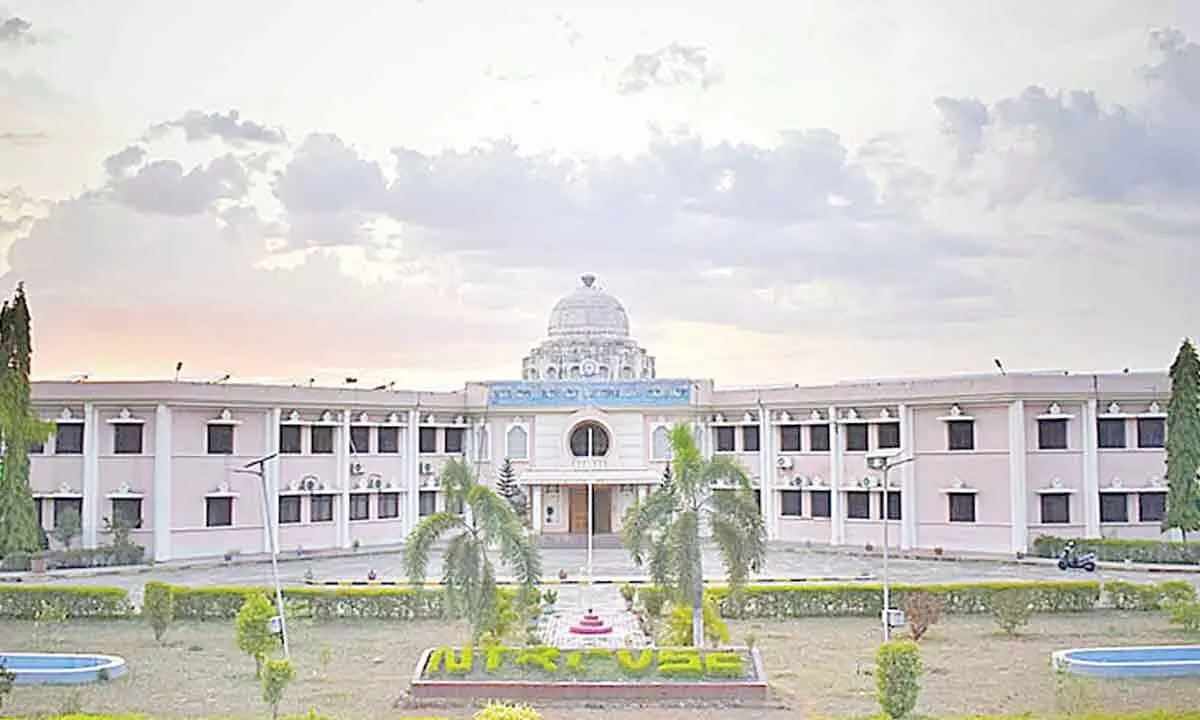Draft plan ready to tackle bug resistance

As part of the pilot project, E coli bacterium from humans, animals and water was isolated, its resistance pattern against a panel of antibiotics was studied
Drug Control Administration prepares a draft action plan to contain Antimicrobial Resistance and submits it to the state govt
Vijayawada : After series of meetings with various stake holders, Department of Drug Control Administration (DCA), Government of Andhra Pradesh, prepared a draft plan for containment of Antimicrobial Resistance (AMR) in the state and submitted it to the state government. On approval by the state government, the action plan AMR will be implemented.
The AMR means the resistance developed by microorganisms like bacteria, fungi, viruses, protozoa, etc., against antimicrobials such as antibiotics. Many pathogenic (harmful) microorganisms are responsible for different diseases in humans and animals. "AMR is an emerging global problem and that needs to be checked. Otherwise, in future, it will be difficult to treat bacterial infections of humans and animals," said Dr Anand Kumar, Professor and head, Microbiology department, NTR College of Veterinary Science, Gannavaram, Sri Venkateswara Veterinary University..
Speaking to The Hans India, Anand Kumar said Krishna district has been selected for executing the AMR pilot project under 'One health' approach by the Central government. He said researchers from the Department of Microbiology, Siddhartha Medical College, Vijayawada and Department of Veterinary Microbiology, NTR College, Gannavaram worked for the pilot project that was successfully completed recently
Under this pilot project, the E coli bacterium from humans, animals and environment (water) was isolated and the resistance pattern of E coli against a panel of antibiotics was studied by the principal investigators of the pilot project. Dr Anand Kumar said antibiotic resistance in bacteria plays important role in treating infections and to prepare action plans. He said if humans and animals are infected with multi drug resistant bacteria, it will be difficult to treat the infections.
The pilot project report was submitted to the National Centre for Disease Control, ministry of health and family welfare, Government of India.
Andhra Pradesh will be the fourth state in India to implement action plan to contain AMR. Earlier, Kerala, Delhi and Madhya Pradesh unveiled the action plan. Medical and health deppartment, hospitals, Drug Control Administration, animal husbandry and fisheries department, veterinary hospitals, environment department, professional councils have to follow the guidelines issued by the state government after approval of the draft plan.
Misuse of anti biotics is the important reason for formulation the guidelines for containment of AMR.
Union government has launched one One Health scheme which is an integrated, unifying approach that aims to sustainably balance and optimise the health of people, animals and ecosystems. Prime Ministers of India and the Netherlands made a agreement in 2018 and recognised AMR as the most important issue. Accordingly, studies have been taken up on AMR under One Health approach.
The Union government unveiled the action plan in 2017 and announced the national policy to contain the AMR. States have to frame guidelines and have to approve it for effective implementation.
The Indian Council of Medical Research(ICMR) has network for AMR surveillance in humans. Similarly, Animals Science Division of Indian Council of Animal Research also recently initiated network for AMR surveillance in animals and fisheries. A great co-ordination is needed between ICMR, ICAR and environment sectors because majority of disease-causing microorganisms or AMR is transmitted between humans and animals, through environment only.









